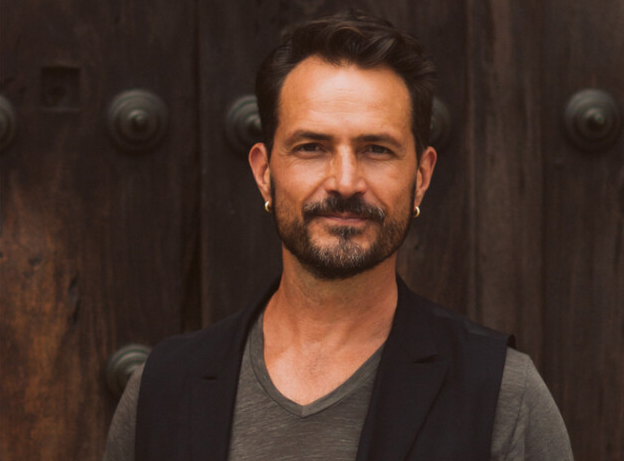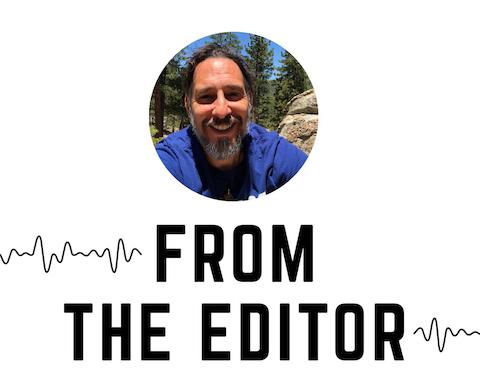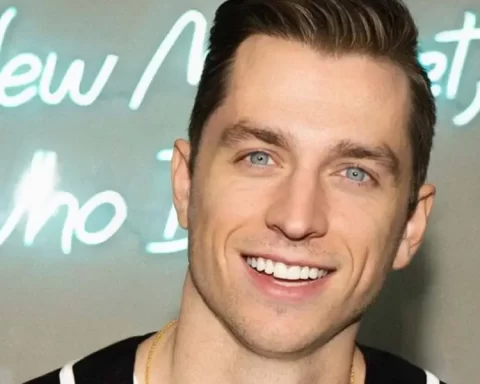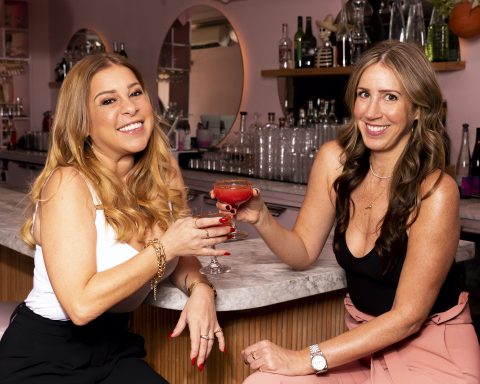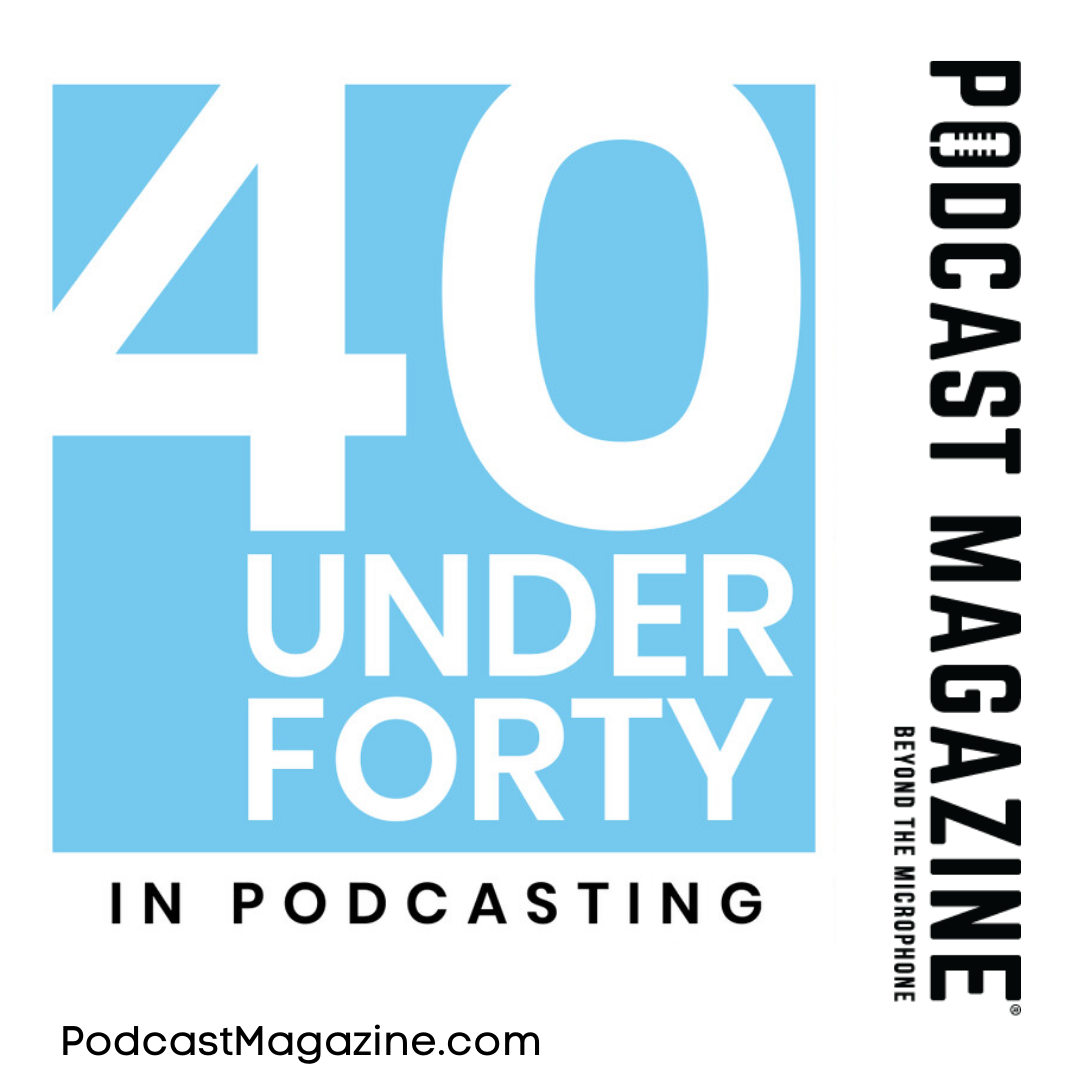Lifestyle design expert Luke Storey has spent the past two decades refining the “ultimate wellness lifestyle.” His teachings encompass transformative principles of health, combining primal health and ancient spiritual practices with the most cutting-edge natural healing and consciousness-expanding technologies.
A motivational speaker who has been featured in Men’s Fitness, The Hollywood Reporter, and Los Angeles Magazine, Luke has also appeared on multiple television networks including Style Network, VH1, and MTV.
His popular show, The Life Stylist, is dedicated to teaching his audience how to live life at the highest level of human potential. He discusses an ever-expanding range of topics, “including sex and relationships, yoga, meditation, smart drugs, health myths, medical conspiracies, spirituality, mindfulness, health food and supplementation, herbs and alternative medicine, [and] biohacking technologies and tactics.”
And the show is making its mark, having received nearly eight-and-a-half million downloads since its launch in 2016.
Luke’s journey to success, however, has been forged on a path that is far from smooth. 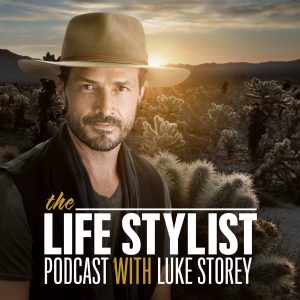
His childhood left him uncomfortable with conflict and anger, and around the age of 10, he turned to drugs as a method of escape. As the downward spiral continued, he began dealing drugs for a living, while periodically working as a waiter.
He knew, however, he had more to share with the world. An aspiring musician whose “heart has always been in music,” he moved to Hollywood with stars in his eyes and the desire to change the world through sound.
However, this change of scenery only exacerbated his addiction to both drugs and alcohol:
“I immediately sunk to the underbelly of the Hollywood music and drug scene,” Luke said.
Seven years later, he hit rock bottom.
“By the time I was 26 years old, I had been suffering deeply from addiction for over a decade. I had completely destroyed myself, physically and psychologically, as well any chance I’d had of finding success in anything.
“The damage was so severe, I experienced a deep level of self-hatred, shame, and hopelessness. My existence was one of darkness, negativity, anxiety, and depression… yet as long as I could get some amount of temporary relief from the existential pain, it was worth the price. Finally, the consequences of my using began to slowly outweigh the benefits of it. There was an aching within my soul for some sense of connection… of peace.”
The repercussions of Luke’s drug abuse—failed relationships, eviction notices, near misses with police, experiences of violence, and general chaos—all came to a head, and he had an epiphany: no matter how much he self-anesthetized, the pain remained.
One evening shortly thereafter, still yearning to “escape one more night of myself,” he ingested a “heroic dose” of mushrooms, resulting in a near nervous breakdown:
“I realized so clearly what a dead-end my life had become. Somehow, that realization planted a mustard seed of hope that, if I could just sober up, I could maybe have a decent life as a decent person… that I could somehow live in a way that made some sort of contribution to humanity, rather than being a constant deficit. There was this minuscule inkling of self-worth, and despite being barely accessible, it inspired me to decide that I really wanted to live. I didn’t want to destroy myself anymore.”
On February 15th, 1997, from the dirty carpet of his dingy apartment, Luke made a call that would change the trajectory of his life.
“I called my mom, and I asked her to help me get into a treatment center.”
Luke promised his mom that he was ready to change his entire life. Two days later, he woke up in rehab.
“I’m eternally grateful that she picked up the phone that day and sprung into action. I knew if I wanted to live my life free of addiction, I was going to have to make radical changes to every single aspect of my existence,” Luke shared.
And that’s precisely what he did. He gave up life as he knew it—his friends, his apartment, and his lifestyle. He committed to a 12-step re recovery program and availed himself to the help and resources offered.
“I fully surrendered—I let go of all my old thinking and ways of living… all of the selfishness and self-centeredness in which I operated.”
Luke began taking meditation classes. He traveled to India to learn about physical well-being, different diets, and detoxing and fasting. He immersed himself in alternative health.
He wholly committed to healing himself… mind, body, and spirit.
Throughout his journey to wellness, Luke worked as a celebrity fashion stylist. Upon becoming sober, he was fortunate enough to land a gig as an assistant wardrobe stylist for Aerosmith.
“This was a huge break for me,” he said. “As a musician, they were my heroes, but they were also a catalyst to my sobriety, because at the time, they were very publicly a sober band. They’d all been to rehab and were experiencing an incredible amount of success. Not only that, but the position led me into my career in the fashion industry, which I did for 17 years.”
When Luke wasn’t working, he was “in the depth of human experience,” as he described it:
“I was building a life of authenticity and introspection. I was deeply committed to meditation, Kundalini yoga, and inner work. I sat at the feet of spiritual masters.”
Meanwhile, the “phoniness” of Hollywood and the superficiality of his work in fashion became less and less congruent with who he was and what his life had become. The resulting inner conflict eventually led him to transition out of the entertainment industry and fully into health and wellness.
In 2008, he started his business, School of Style (a fashion school for stylists). The experience taught him about reciprocal content marketing. Ten years later, School of Style stopped teaching live classes and went online. Luke learned even more about marketing without actually spending any money. He replaced traditional advertising with releasing high-quality, free content, inviting those who wanted to go further into the fold of his offerings.
In 2016, despite battling imposter syndrome in regard to entering the health and wellness space, he leaned on the experience and wisdom he’d gained over the past 18 years to start The Life Stylist podcast. The connections he’d made along his journey with others in the industry helped him solidify his place in the wellness space faster than he could have imagined.
He then incorporated into his podcast the marketing model he’d utilized in his business, providing listeners with free two- to three-hour episodes with only a couple short ads intermixed. The show became so successful, he parlayed it into a lifestyle business.
“If I can do it, everyone can,” Luke encouraged. “I started The Life Stylist podcast so I could share what I’d learned over the years I’d been in health, spirituality, and personal development with a greater audience. I wanted to impart what I’d come to understand about increasing one’s level of joy, vitality, well-being, and fulfillment in life.
“I also knew there were so many experts, teachers, and different modalities in the world that remain relatively undiscovered and underserved. And so for me, it was like, ‘Wow… this is a fantastic opportunity.’ Not only to interact personally with my audience, but to share them with more people. It was absolutely born out of a passion for learning and growing myself. Even to this day, it’s very rare that I have a guest on the podcast who I don’t choose myself as someone I intuitively feel will bring immense value as well as a unique perspective. I love giving people like that a platform—I get a lot of fulfillment in helping them share their brilliance with more people who would benefit from it.”
Luke’s episodes focus on ultimate wellness born not only from self-love, but from an understanding of “the complete human experience within oneself.” Naturally, that encompasses the body, mind, and spirit. His overarching mission?
To serve the highest good of the human collective for all creation.
“It’s about creating a balanced system within oneself, where we are being as mindful as we can about our physical vitality, health, and longevity, so that we have the energy to do the inner work on our mindset and spiritual connection. All of this is equally essential,” Luke explained.
“We each have access to consciousness. Oftentimes, our preconceptions and ways of thinking, feeling, and being actually interfere and obscure our ability to be who we really are. It’s in the removing of those parts of our self that are not true and real that leaves behind what is. A lot of it is subtraction.
“I love teaching the concept of negativity fasting, for example. See how long you can go in a day without being critical of self or of anything in your objective reality. From the most superficial—‘Why did that guy park crooked?’ to ‘Why did they paint this room this ugly color?’ to the most damaging—‘Why do I suck so bad at X, Y, and Z?’ The negativity bias within us is so powerful, and it’s intensified through toxic social media and elements of our culture. Just imagine if we could go one day without having a negative thought about ourselves or something in our experience.”
“There’s a part of our higher self that wants to bring us back into spiritual homeostasis, too. That’s when we’re living according to what we believe to be true and of the highest intention for ourselves and others. There’s always a center place of balance. And I think that’s really important to explore, because viewing it from that perspective helps prevent us from leaning into perfectionism, being overly critical, and/or too neurotic and controlling about our desire to live a healthy, free, happy life. Because, the truth is, we’re always going to fall short when our expectations are too high. Perfection is not an option.
“But if we can practice balance and humility, we can give ourselves credit for the accomplishments we have attained, whether internal or external, and we can continue to strive to improve ourselves and our lives while actually enjoying the journey. We can even learn to enjoy some of the missteps and mistakes. Sometimes, I do things that are just so out of balance, so stupid… but I’ve learned how to just wear the garment of life a bit lighter. Rather than spiraling into a mistake in critical condemnation, it feels so good just to kind of laugh at myself, get back on the horse, and say, ‘Okay, let’s take note of the lesson here, and next time, perhaps we can make a little improvement.’ We can recontextualize our experiences.
“So rather than being a victim and complaining and having resentments toward people who aren’t doing things right and feeling sorry for myself and being disempowered, it’s enabled me to discern when something is actually under my control, and I can proactively help move it along. And when it’s something I literally just can’t do anything about, I just surrender and accept it.
“We literally, in every moment of our existence, have the choice of perception. One of the most potent quotes I’ve heard is by Shakespeare:
“‘There’s no such thing as good or bad—only thinking makes it so.’”
When it comes to living purposefully at the highest level of human potential, Luke has elevated the bar, yet strives to maintain its place of accessibility. His dedication to transforming people’s experience through intentionality is clearly making an impact not only on his audience, but on all who are fortunate to be touched by his message.
April 2022


